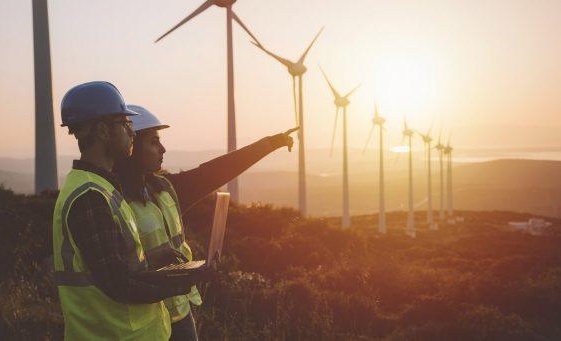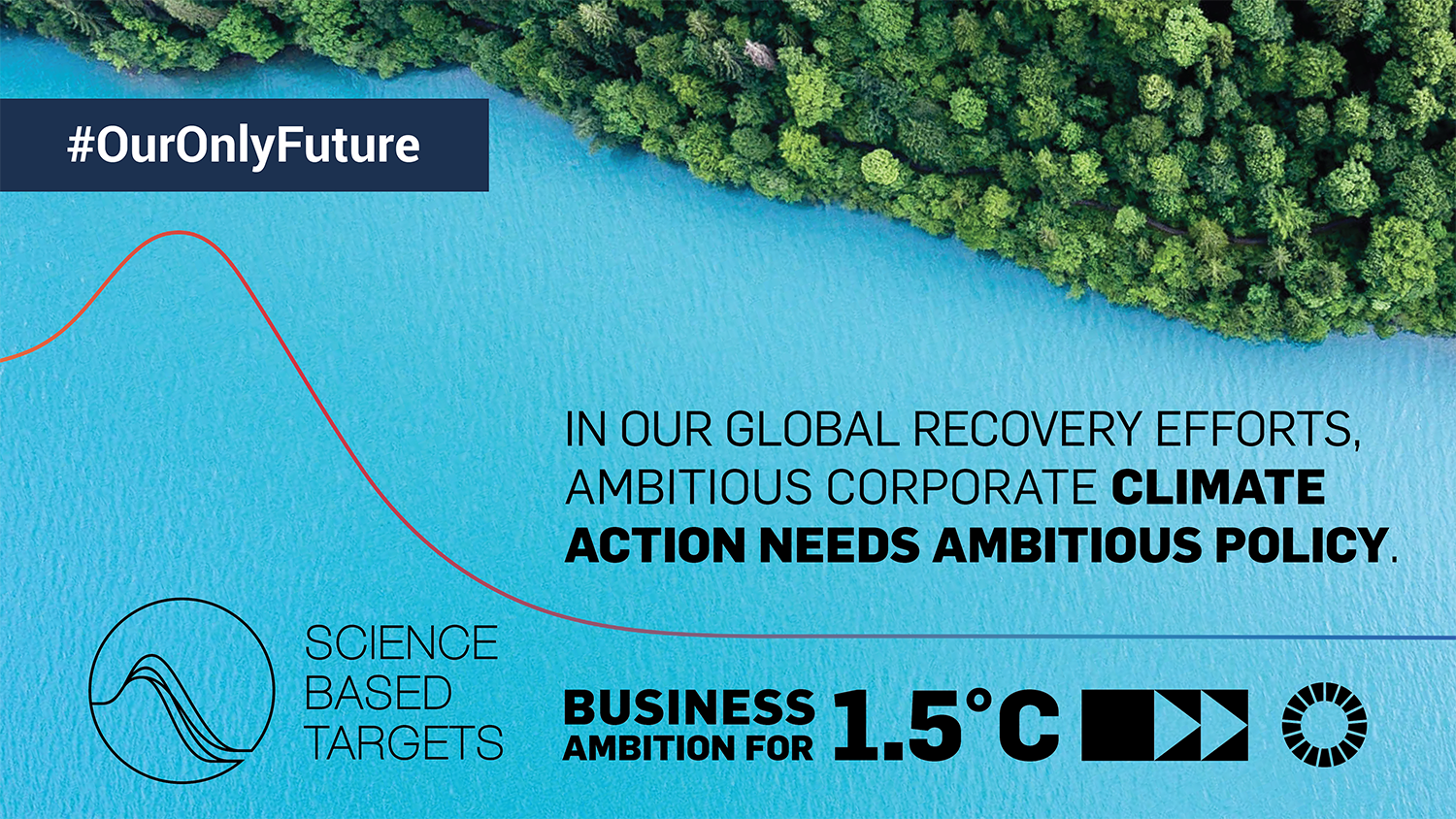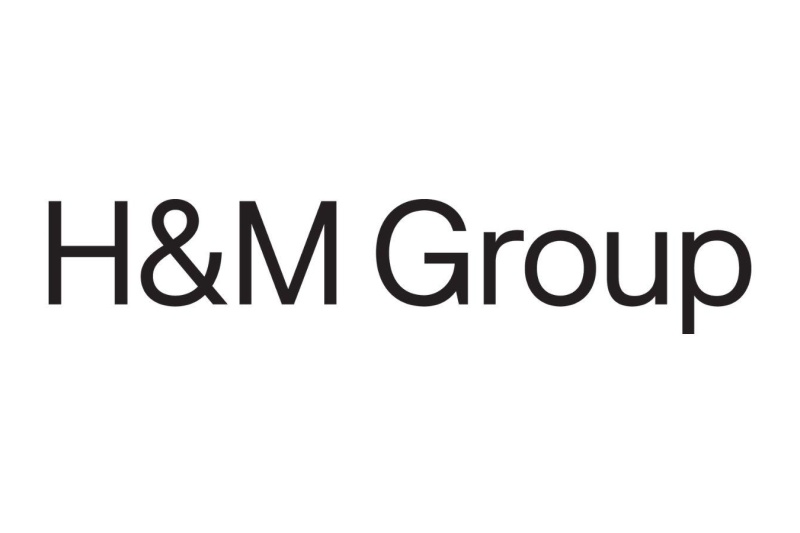
Speaking up: The imperative of corporate climate advocacy
11th Dec 2020
By Tom Dowdall, Campaign Manager, Business Ambition for 1.5°C
To halve global emissions by 2030 and limit global warming to 1.5°C, we need a rapid increase in climate action from the world’s largest countries, cities, industries and companies.
Corporations have a critical role to play in boosting political ambition to the level so urgently needed. Politicians need to see that the private sector is ready for – and asking for – 1.5°C-aligned policy.
In 2020, hundreds of companies setting science-based targets through the Business Ambition for 1.5°C campaign called for increased climate ambition in the European Union (EU), United Kingdom (UK) and United States (US).
In 2021 we need hundreds more to push even harder for ambitious climate policy.
Five years on, the goals of the historic Paris Agreement can’t be achieved without all countries regularly upping their ambition in line with the latest science. All governments must now set robust targets in line with halving emissions by 2030.
This is where corporate climate advocacy needs to be loud, clear and consistent. Building on the key achievements of 2020, here’s what’s needed in 2021 as the critical decade of ambition gets well underway:
COVID-19: Uniting business and government to recover better
Amidst the major challenges and disruptions of COVID-19, May 2020 saw over 150 global corporations sign the largest ever UN-backed, CEO-led climate advocacy effort.
These companies – all part of the Science Based Targets initiative (SBTi) and its Business Ambition for 1.5°C campaign – called on governments to reimagine a better future grounded in bold climate action.
Now, over 170 businesses have signed the statement, urging governments to prioritize a faster and fairer transition to a green economy by aligning policies and recovery plans with the latest climate science.
Governments are investing an unprecedented amount into COVID-19 recovery packages – approx. US $12 trillion globally, which is the equivalent of 12% of global gross domestic product (GDP) in 2020.
This is a chance to build back better: to tackle the global health and climate crises simultaneously, ensuring our recovery efforts lead to sustainable and thriving economies, resilient to future shocks.

A critical chance to raise the bar: The EU’s 2030 climate target
The EU is putting climate action at the top of the agenda as part of the Green Deal and Net Zero 2050 target in the Climate Law.
But these targets must be coupled with 2030 goals, to ensure we halve global emissions by 2030 in time to ward off the worst impacts of climate change.
The private sector is sending a clear signal to EU policymakers: robust climate action means cutting emission by at least 55% by 2030.
Over 200 European investors and CEOs of leading businesses – from Enel, Facebook, H&M, Levi Strauss, Pepsi Co – have issued an open letter calling for the EU to ramp up climate ambition. The EU is set to make a decision ahead of the Climate Ambition Summit falling on the Paris Agreement’s 5-year anniversary.
The president of the European Commission, Ursula von der Leyen, personally welcomed business support for higher EU climate targets and the EU has just announced its new agreed target to cut emissions by 55% by 2030.
The road to COP26 and 2030: The UK’s role in leading the way
Ahead of hosting COP26 in November 2021, the UK has raised the bar on national climate ambition.
The private sector held the mirror up to the UK government in December 2020 – calling on the UK to back up its 2050 net-zero target with an ambitious, robust 2030 goal. Tesco, BT, ScottishPower, Sky, EDF and Coca-Cola were among 77 major businesses who wrote to the UK Prime Minister underlining the need for an ambitious Paris-aligned emissions reduction target, known as a Nationally Determined Contribution (NDC).
Subsequently, the UK announced an ambitious 2030 68% reduction target, significantly higher than its previous 57% target, in line with the Climate Change Committee’s advice and among the most ambitious of any country so far.
This, in combination with the EU 2030 target, sends a clear signal to other leaders as the UK co-hosts the December 12th Climate Ambition Summit: Five years since the Paris Agreement, it’s time to raise ambition and go further – faster.
“All In”: US leaders unite for ambitious climate action and clean recovery
President-Elect Biden has already pledged to bring the US back into the Paris Agreement, raising hopes for building positive momentum to COP26.
The We Are Still In coalition issued a statement from US communities, businesses, and institutions calling for a national mobilization on climate and recovery.
Signed by over 1,500 leaders, including major companies such as Nestle, LafargeHolcim, PVH Corp and General Mills, the statement supports a 2050 net-zero target for the US, a just and ambitious approach to climate policy and economic renewal, and commits signatories to centering climate in their own operations and seeking unprecedented partnerships between federal and non-federal actors.
Climate leadership in 2021: Ambition. Action. Advocacy.
Ambition alone is not enough.
Today’s corporate climate leaders know that they have a critical role to play in transforming the economy to a green, fair, sustainable future.
Not only do they disclose their risks and impacts, work with their supply chains, set science-based targets, and align with robust net-zero goals; they also play their vital part in the “ambition loop” – driving governments to set bold policies, which in turn gives other businesses and investors in critical sectors the clarity and confidence to make transformational change.
Staying silent on climate policy is no longer an option – the scale of the crisis demands clear, consistent leadership and support for ambitious climate policy.
In 2021, all countries in the Paris Agreement will have to submit updated 2030 targets. They must seize the opportunity to couple COVID-19 recovery with preventing irreversible climate change and environmental damage.
Prominent and clear businesses voices are already driving change; now we need all companies in 2021 to step up and join the leaders.
With bold government policy and ambitious corporate leadership, we can build a net-zero, 1.5°C, climate-safe, resilient future.



